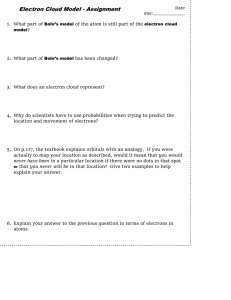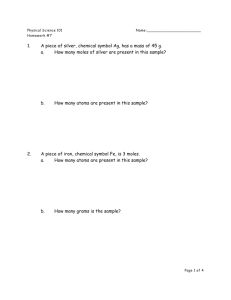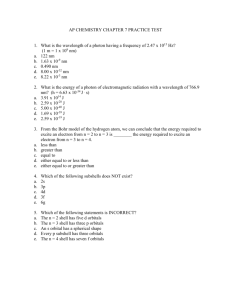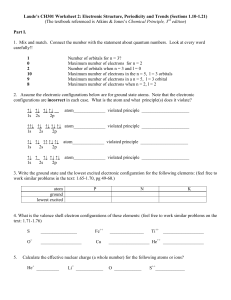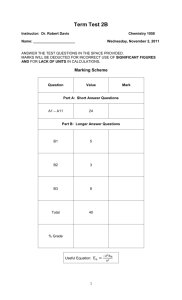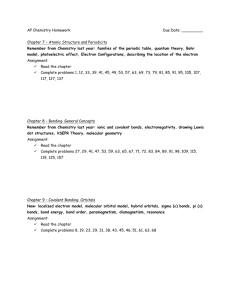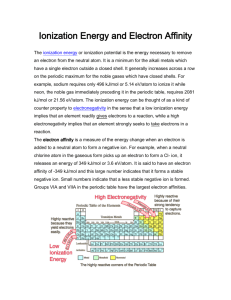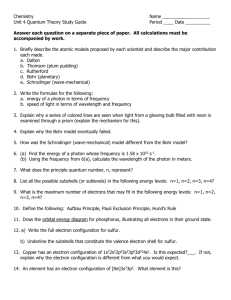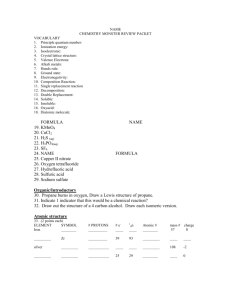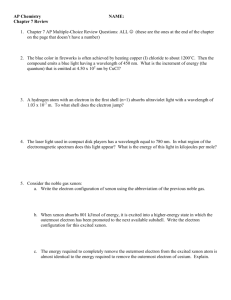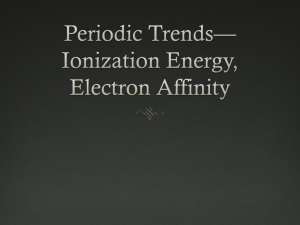Topic 12 Problems
advertisement
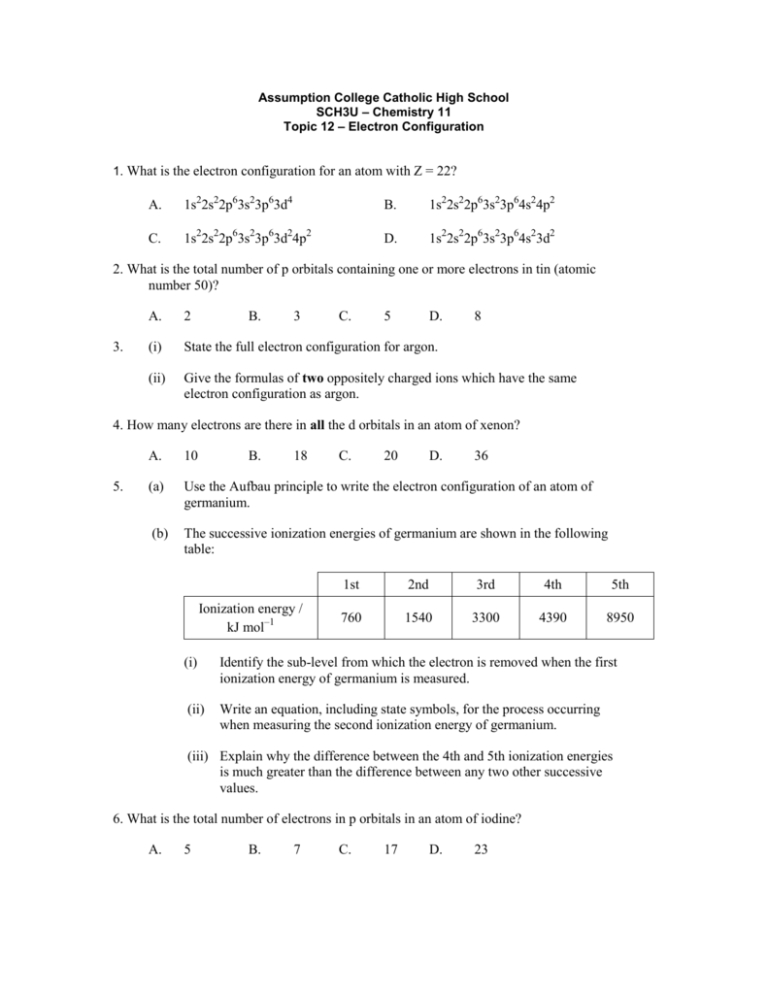
Assumption College Catholic High School SCH3U – Chemistry 11 Topic 12 – Electron Configuration 1. What is the electron configuration for an atom with Z = 22? A. 1s22s22p63s23p63d4 B. 1s22s22p63s23p64s24p2 C. 1s22s22p63s23p63d24p2 D. 1s22s22p63s23p64s23d2 2. What is the total number of p orbitals containing one or more electrons in tin (atomic number 50)? 3. A. 2 B. 3 C. 5 D. 8 (i) State the full electron configuration for argon. (ii) Give the formulas of two oppositely charged ions which have the same electron configuration as argon. 4. How many electrons are there in all the d orbitals in an atom of xenon? 5. A. 10 B. 18 (a) Use the Aufbau principle to write the electron configuration of an atom of germanium. (b) The successive ionization energies of germanium are shown in the following table: Ionization energy / kJ mol–1 C. 20 D. 36 1st 2nd 3rd 4th 5th 760 1540 3300 4390 8950 (i) Identify the sub-level from which the electron is removed when the first ionization energy of germanium is measured. (ii) Write an equation, including state symbols, for the process occurring when measuring the second ionization energy of germanium. (iii) Explain why the difference between the 4th and 5th ionization energies is much greater than the difference between any two other successive values. 6. What is the total number of electrons in p orbitals in an atom of iodine? A. 5 B. 7 C. 17 D. 23 7. A transition metal ion X2+ has the electronic configuration [Ar]3d9. What is the atomic number of the element? A. 27 B. 28 C. 29 D. 30 8. How many orbitals are there in the n = 3 level of an atom? A. 3 B. 5 C. 7 D. 9 9. What is the electron configuration for the copper(I) ion, (Z = 29)? A. [Ar]4s23d9 B. [Ar]4s13d10 C. [Ar]4s13d9 D. [Ar]3d10 10. State the two possible oxidation states for iron and explain these in terms of electron arrangements. 11. Which equation represents the third ionization energy of an element M? A. M+(g) M4+(g) + 3e– B. M2+(g) M3+(g) + e– C. M(g) M3+(g) + 3e– D. M3+(g) M4+(g) + e–
